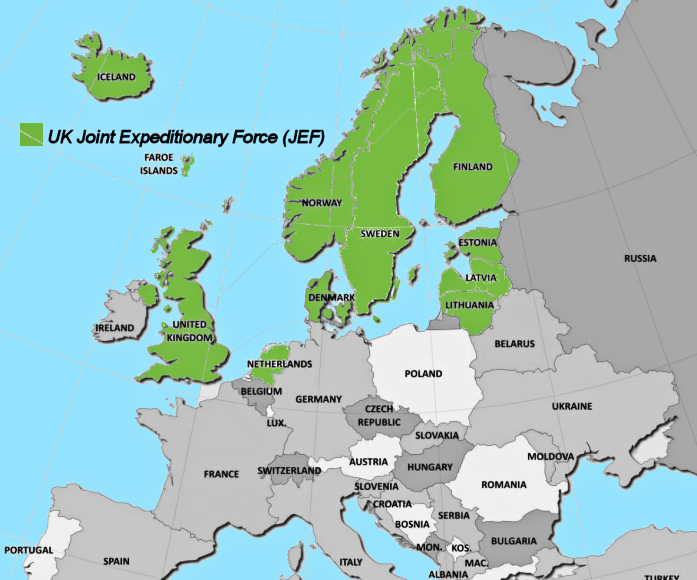If you think the U.S. and NATO are leading the European response to the Russian invasion of the Ukraine, you might be surprised to learn that leaders of the UK Joint Expeditionary Force nations (shown on the map above) met on March 14 at Chequers, the country house of Britain’s prime minister.
The next day, British Prime Minister Boris Johnson gave a statement to the press:
“We agreed that Putin must not succeed in this venture,” Boris Johnson told The Economist the next day. They agreed to “co-ordinate, supply and fund” more arms and other equipment requested by Ukraine. And they declared that JEF, through exercises and “forward defence”, would seek to deter further Russian aggression—including provocations outside Ukraine that might stymie NATO or fall under its threshold.
The story goes on to explain:
JEF, largely unknown outside defence circles, was established a decade ago as a high-readiness force focused on the High North, North Atlantic and Baltic Sea regions (see map for its members). Unlike NATO, it does not need internal consensus to deploy troops in a crisis: Britain, the “framework” nation, could launch operations with one or more partners. As one British officer puts it: “The JEF can act while NATO is thinking.”
The article also notes: "For Europeans, much of this is about strategic autonomy—in part an effort to insulate their defence from the vagaries of American politics."
The article points out that on January 17th Britain began rushing thousands of NLAW guided missiles to Ukraine (the acronym stands for Next Generation Light Anti-tank Weapons which a product of the Swedish company Saab which has been sold to a number of NATO countries). They are also sending anti-aircraft missiles.
As noted in The Baltic Times by Estonian Prime Minister Kaja Kallas, whose country has provided over 220 million euros in military and humanitarian aid to Ukraine: "In order to ensure the security of our region, defense cooperation in all formats is essential. This is why concrete steps must be taken, including training exercises organized, so that what is being done within the framework of the JEF would also ensure the security of the Nordic-Baltic region more than before."
This should not be confused with the Anglo-French Combined Joint Expeditionary Force (CJEF) and other European defense agreements which operate outside NATO.
About that comment “The JEF can act while NATO is thinking.”
It should also be understood that between them Britain and France have about 515 nuclear warheads. Russian, of course, is the other European nation to possess nuclear weapons with about 6,250. Needless to say, the "successful" use of a dozen nuclear weapons by each in the current Ukraine conflict would be catastrophic. It would pretty much make NATO and the United States politically irrelevant.
And, in fact, the possession of those weapons by Britain and France pretty much make NATO and the United States politically irrelevant.


No comments:
Post a Comment